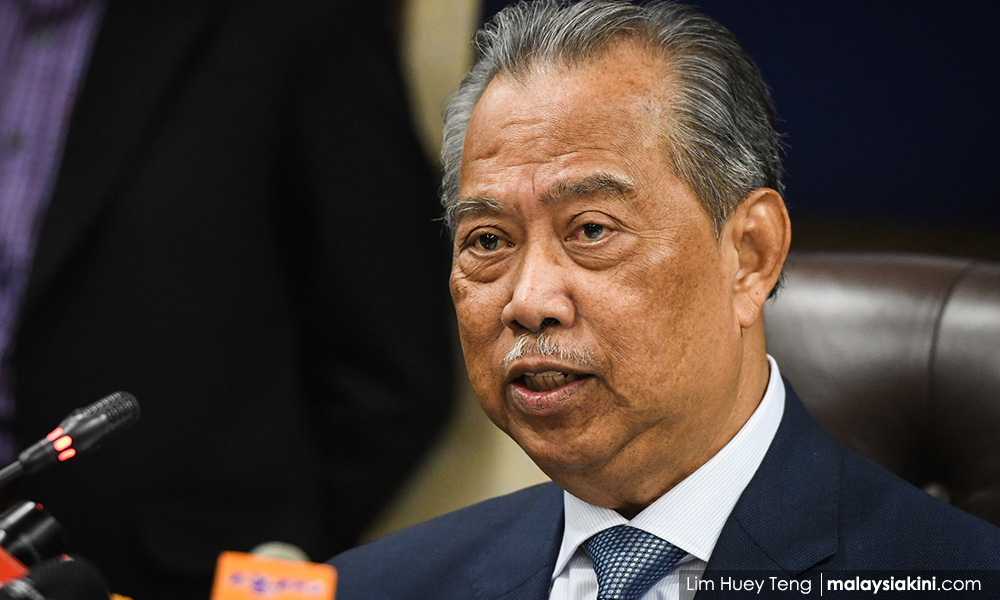
BOOK EXCERPT | This chapter gives my impressions of some of the major personalities I have had dealings with during my political career - Abdul Ghani Othman, Abdullah Badawi, Chan Kong Choy, Lim Ah Lek, Ling Liong Sik, and Muhyiddin Yassin.
Abdul Ghani Othman
Abdul Ghani Othman became the menteri besar of Johor in 1995. Prior to this, he was a senator and a deputy minister. In 1993, he was appointed the Minister of Youth and Sports. I served two terms as the state exco (1995–2004) when he was the menteri besar.
Abdul Ghani became a politician with a strong academic background, having served as the dean for the Faculty of Economics and Business Administration at University of Malaya from 1980 to 1984.
He is tall and well-built, but soft-spoken. At times, he tends to be academic in his approach towards solving the rakyat’s problems or developing the state.
Those who don’t know him well would assume he is a man of few words. Somehow, we got along well.
He is hard-working, humble but not a good public speaker, especially in Bahasa Malaysia. He seems more comfortable speaking in English.
Somehow, Ghani has reservations about fostering good relations with Singapore. Under his leadership, we continued to host Hari Raya open houses for the prime minister of Singapore and his cabinet members.
We also continued to visit the residence of the prime minister of Singapore to celebrate Chap Goh Meh. However, there was hardly any bilateral contact officially between Singapore and Johor.
Under Ghani, the state government continues to promote industrialisation in Johor. I was a member of his delegation to Taiwan, the US, Australia, Japan and South Korea.
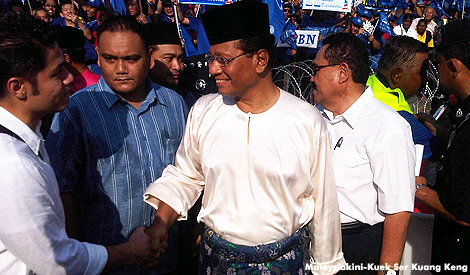
While he did not neglect to promote industrialisation, Ghani felt strongly that the rakyat of Johor were entitled to a better quality of life with greater emphasis on landscaping, large-scale tree planting and the development of amenities and recreational parks in every district in Johor. I was appointed by Ghani to develop recreational parks in Johor and succeeded.
He was very committed to developing sports and culture in the state. His favourite cultural show is zapin, a famous traditional dance in Johor.
Under his leadership, we can see a revival of sporting and cultural activities in every district. Because of the emphasis on tree planting and landscaping, Johor became cleaner and greener.
From 2003, I initiated a yearly dialogue cum dinner in Saujana, the official residence of the menteri besar of Johor. This dialogue involved the menteri besar and all MCA state assemblymen in Johor.
This proved to be extremely useful for the MCA state assemblymen to resolve difficult issues in their respective constituencies, such as land issues for squatters, conversion of land use by temples, relocation of under-enrolled SJKCs, and construction of places of worship such as Chinese and Hindu temples, which required the personal attention of the menteri besar. I continued this yearly practice until I retired in 2013.
Ghani continued to serve as the menteri besar until 2013.
In the 2013 general election, despite announcing his retirement, it was felt that he was the only winnable candidate to face Lim Kit Siang in the contest for the Gelang Patah parliamentary seat. Unfortunately, the winds of change had started blowing then and he was defeated by Kit Siang.
This marked the end of his political career. After his retirement, he was appointed as the chairman of Sime Darby Bhd.
I still touch base with Ghani. We remain good friends.
Abdullah Badawi
(Prime Minister: October 2003-April 2009)
(Prime Minister: October 2003-April 2009)
When I was Minister of Health from 2004 to 2008, I had the privilege to serve under former Prime Minister Abdullah Ahmad Badawi. A soft- spoken man, he was always courteous and smiling. So much so that people quickly felt at ease in his presence. Hence his nickname, Pak Lah.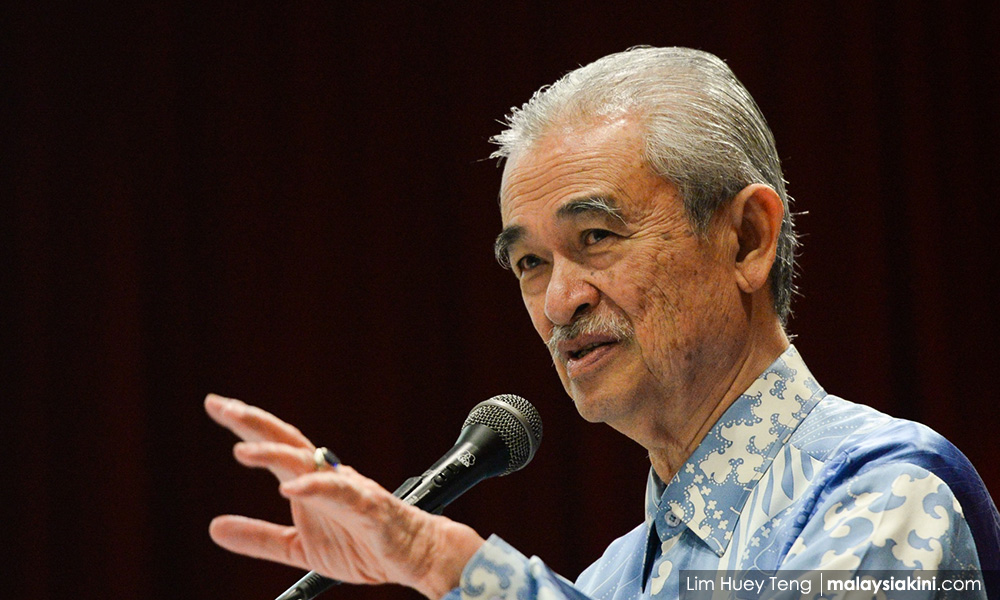

Sadly, Pak Lah had a habit of being late for meetings or functions. His speeches were usually dull, delivered in a monotone and often lacking in substance. When he chaired meetings, including cabinet meetings, he allowed members to continue speaking even when they strayed from the topic.
I understand that Pak Lah suffers from a medical condition that causes him to fall asleep easily, even during the day.
This, together with his short attention span, caused him considerable embarrassment, and he was often the butt of jokes by opposition leaders and members of the public. I do not know exactly what medical condition he suffers from, but it appears to be sleep apnea.
When Abdullah Badawi became the prime minister in late October 2003, many had high hopes that he would bring change, opening more space for dissent and freedom of the press.
In fact, during his prime ministership there was much greater freedom for public discourse on national issues. However, it was not long before many observers began to conclude that this unfettered debate was a result of the fact that Pak Lah was not on the top of the major issues facing the country.
When he chaired meetings, he seemed unable to come to a conclusion or make a definitive decision. Participants could be left hanging about the outcome. On the other hand, the ministers and administrative officers in attendance rarely felt much stress.
After he had served as prime minister for about three years, there was a lot of grumbling on the ground that Pak Lah’s administration was falling short of expectations.
He started with a very high baseline and when he did not perform, there was disappointment all round. Dr Mahathir’s open criticism of Pak Lah also did considerable damage to his image and his administration.
Dr Mahathir used to accuse Pak Lah of being controlled by the boys from the fourth floor. Dr Mahathir was referring to Pak Lah’s aides that occupied the fourth floor of the prime minister’s office block.
As time passed, this negative perception increased. I admire Pak Lah for the fact that despite the mounting attacks, he maintained a benevolent silence.
I will always remember Pak Lah’s kindness, humility and advice to me after my resignation from all government and party posts in January 2008. In fact, it was his kindness that enabled me to fulfil the pledges that I made as Minister of Health and MP after I resigned.
Chan Kong Choy
(Minister of Transport: July 2003-18 March 2008)
(Minister of Transport: July 2003-18 March 2008)
Chan Kong Choy spoke Mandarin well and had good public speaking skills. He was the National Youth Chief for many years and had strong grass-roots support before becoming the deputy president in 2003 under a peace plan between Team A and Team B. This was the peace plan under which Ong Ka Ting became president.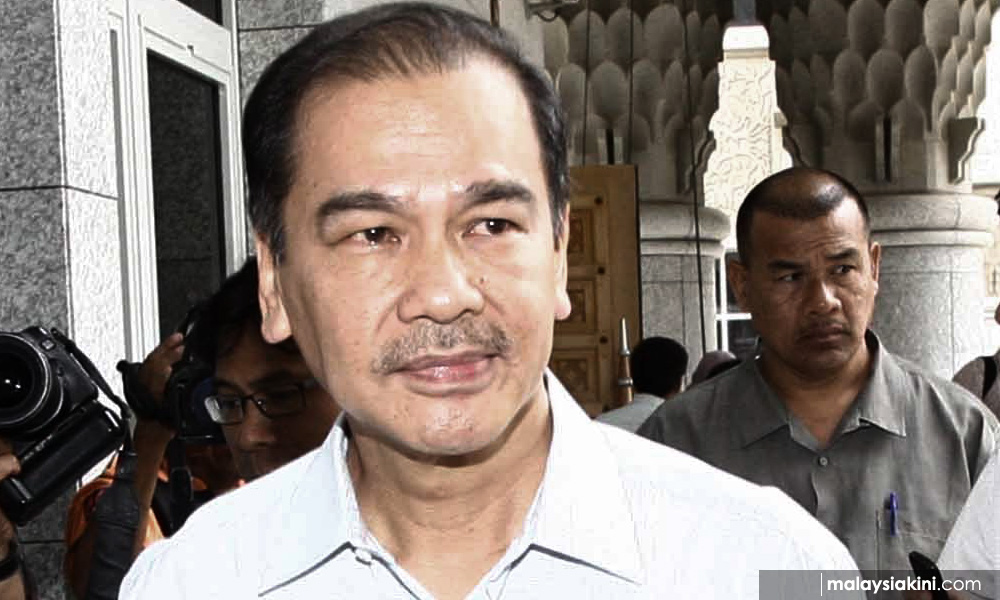

Like me, Kong Choy served as a state exco member in Pahang before moving to the central government as a deputy minister and later Minister of Transport.
Although both of us were in the central committee for many years, we rarely mixed socially. Somehow, perhaps because we came from different party factions, we kept our distance. But there was never any friction or hostility between us.
Apart from the factional politics, my gut feeling was that, when Ka Ting was MCA president, he may have influenced Kong Choy to regard me as someone hostile to his interests.
This appears to have been a divide-and-rule tactic designed to ensure that Ka Ting could consolidate his political power. Even now, I harbour no ill feelings towards Kong Choy.
Lim Ah Lek
(Deputy MCA President: 1996-2003)
(Deputy MCA President: 1996-2003)
Although Lim Ah Lek had served as deputy president under Ling Liong Sik, he was really only a figurehead in Team B. Chan Kong Choy was the one who was really calling the shots. Both hailed from Pahang and had known each other for a long time.
Ah Lek was very well dressed, well groomed and looked quite impressive. But while he certainly had the form, there was little substance.
Despite many years in MCA political arena, Ah Lek had poor communication skills, especially in Mandarin, and preferred reading press statements crafted by others.
The first time I saw Ah Lek deliver a speech in Mandarin was when I was a young exco member. I was surprised by his halting delivery, and resolved to continue to brush up my own skills in the language to ensure that I did not display the same weakness.
Although he had served in Pahang as an exco member and later became Minister of Human Resources, Ah Lek’s Mandarin did not improve much in the 25 years he was in the MCA.
Because of his poor command of the language, he rarely travelled outside Pahang. Hence, his influence within the party was very limited.
I attended MCA central committee meetings from 1990 until 2003 when Ah Lek retired from active politics under a peace plan. In those 13 years, I cannot recall him ever saying or doing anything that was worthy of an MCA senior leader.
During Liong Sik’s presidency Ah Lek functioned as deputy president only in name. Indeed, he was never regarded as a threat to Dr Ling Liong Sik. Liong Sik felt comfortable having such a weak deputy.
Ling Liong Sik
(MCA President: September 1986-May 2003)
(MCA President: September 1986-May 2003)
Dr Ling Liong Sik helmed the MCA for 17 years as president, coming to power in the wake of Tan Koon Swan’s fall. He is a soft-spoken man who hardly shows any anger in the public.
He is a real political animal. Despite his poor command of Mandarin, he has been able to compensate for that with humility and hard work.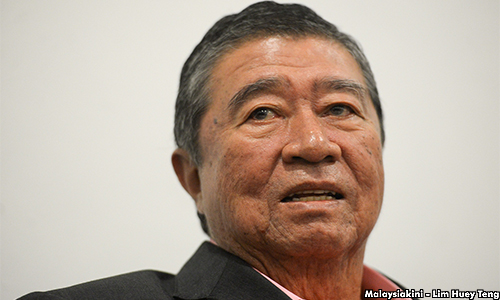

No one in the party can deny that as a president of the MCA, he has done much work for Chinese primary education and tertiary education.
The rapid expansion of the TAR University College and the establishment of UTAR was due to his untiring efforts as president of the MCA. Ling was good at striking compromises with his political foes to keep stability within the party.
He also travelled extensively, and his whisky-drinking habit helped to break the ice with many. As a result, he was able to establish strong grass-roots support. However, those who were close to him were usually his close drinking buddies. Gradually, he became alienated from active MCA members who did not share this habit.
As a politician, he would never say no directly. I also noticed that he cultivated a network of friends in the business community. This was the time when MCA was at the peak of its power and influence.
It was through Ling’s efforts that the MCA was put on a strong financial footing. His non-interference in The Star helped to ensure that it became the leading English-language newspaper in the country with the highest circulation.
Today, dividends from The Star form the main source of income for the MCA. This income can vary from RM35 to RM50 million a year.
Hopefully, future MCA leaders will not regard the newspaper as their own propaganda machine. Non-interference in the editorial and management of the newspaper is important if The Star is to retain its credibility.
The declining fortunes of other politically well-connected media should serve as a constant reminder to the MCA leadership of the folly of interference in the newspaper’s political independence.
Ling appears to have liked having Lim Ah Lek as his deputy. Ah Lek had poor grass-roots support and was not a good public speaker. Thus, he could hardly be considered a political threat.
Ling often remarked to MCA members that he and Ah Lek were so close that the two shared the same trousers.
This cozy relationship lasted for many years until the takeover of Nanyang Press Holdings in 2001 when Ah Lek showed some uncharacteristic independence by criticising the move. In fact, he became the leader of what became known as “Team B”.
There was also a much-speculated gentleman’s agreement between Dr Ling and Ah Lek that may have been the underlying source of the friction between the two leaders.
The content of this agreement, however, is disputed, as are the facts about who betrayed who. Dr Ling tells one version while Ah Lek tells another.
Among grass-roots leaders, the general feeling was that both of them had overstayed, especially after Mahathir’s sudden resignation as prime minister in June 2002.
There was also speculation that the clashes between Liong Sik and Ah Lek were engineered by Ong Ka Ting and Chan Kong Choy. But I have no hard evidence to support this alleged behind-the-scenes collaboration between the two men.
Muhyiddin bin Haji Mohd Yassin
When I was first elected to the Johor state assembly in 1986, Tan Sri Muhyiddin was the mentri besar. In 1990, after my re-election as the state assemblyman for DUN Bandar Penggaram, I was appointed as Johor exco.
I served directly under Muhyiddin. In 1995, he returned to federal politics where he was appointed as the Minister of Youth and Sports. He subsequently served as a cabinet minister in various ministries before he was appointed deputy prime minister and Minister of Education in 2009.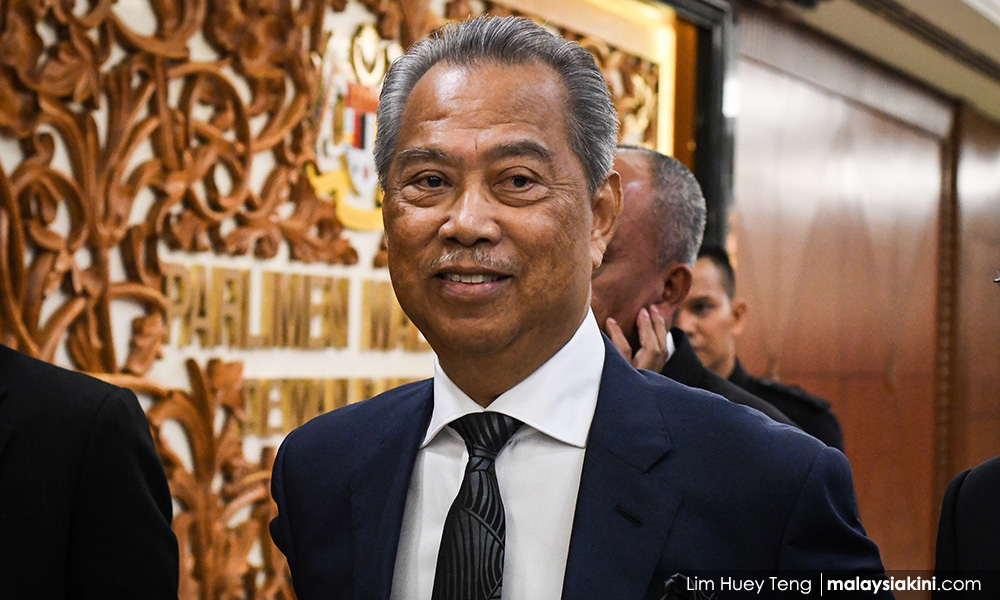

As the menteri besar of Johor, Muhyiddin was known to be dynamic and hard-working. A good speaker of both Bahasa Malaysia and English, he fostered good relations with the Singaporean government.
His father, Haji Muhammad Yassin bin Muhammad, was an Islamic theologian and cleric based in Muar. Hence, Muhyiddin has a good knowledge of Islam. He started the tradition of inviting Mr Goh Chok Tong, the prime minister of Singapore, and his cabinet ministers to Johor for the annual Hari Raya open house.
In return, the Johor executive council, led by Muhyiddin, would attend the Chap Goh Mei dinner at the official residence of the prime minister of Singapore. It was during Muhyiddin’s time that the relationship between Singapore and Johor was cordial and mutually beneficial.
Muhyiddin is often credited for the rapid industrialisation in Johor. Singapore became one of the major foreign investors in Johor during this period. The success of the rapid industrialisation in Johor led to an acute shortage of skilled labour.
Muhyiddin led a delegation to Singapore to study vocational and part-time training. He also led many trade delegations overseas to attract foreign investors. Somehow, he was hesitant to join the delegation organised by the Ministry of International Trade and Industry (MITI) led by its minister, Tan Sri Rafidah Aziz.
I had the opportunity to join all the overseas delegations to attract foreign investors. Muhyiddin made a concerted effort to attract investments from the steel industries in Taiwan, Japan, Korea and China.
While Johor achieved considerable success in attracting foreign direct investment from Singapore, Japan, South Korea and the United States, somehow we were unable to convince any major steel players to set up a plant in Pasir Gudang, Johor.
Muhyiddin started the tradition whereby all the state excos under his leadership would make yearly visits to all the state and parliamentary constituencies of Johor.
These visits provided a good opportunity for the state government and excos to go to the ground to witness developments and problems faced by the people. The response from the rakyat was good.
The close rapport between the state government and the rakyat of Johor enabled Barisan Nasional to achieve total victory in all the seats contested in the 1995 general election. When Abdul Ghani Othman became mentri besar, he continued this tradition. Again, BN achieved total victory in the 1999 general election.
As a politician, Muhyiddin does not project a friendly disposition. He hardly smiles. This can unnerve many people who come into contact with him.
In fact, Muhyiddin by nature is friendly, humble and helpful. I maintained a good personal and working relationship with him from the Johor days until he became the deputy prime minister.
When I was the president of MCA, I often had to seek his help as the Minister of Education to resolve many issues with Chinese schools. It was due to his support that MCA managed to build seven new SJKCs and relocated 13 under-enrolled SJKCs when I held the MCA presidency.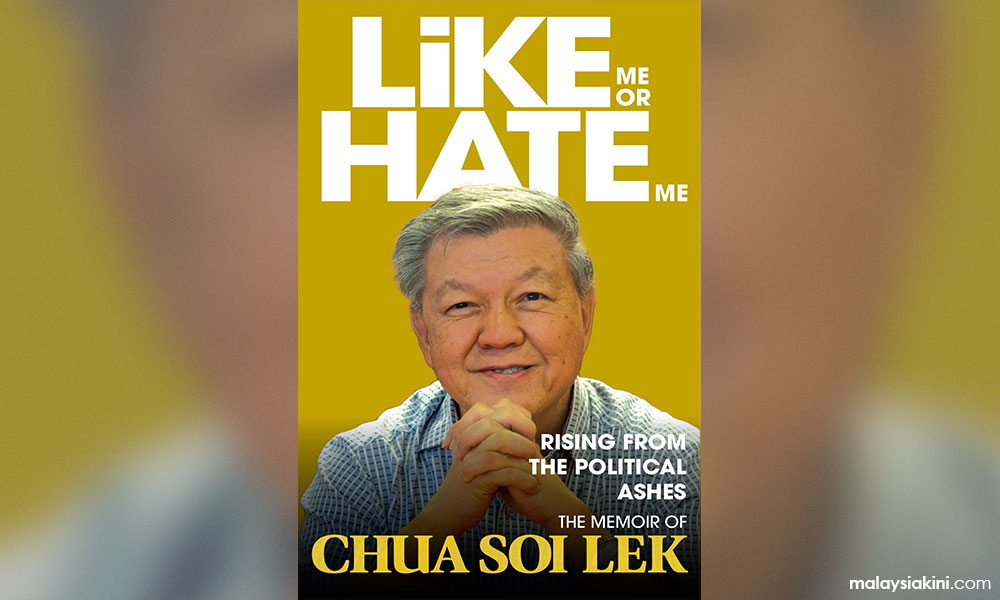

From my observation, Muhyiddin never really developed a close personal relation with Najib despite being the deputy president of Umno and deputy premier.
When the 1MDB scandal and the RM2.6 billion personal donations to Najib became public knowledge, Muhyiddin became highly critical of Najib’s handling of the scandal.
His continuous criticism about 1MDB was something Najib could not accept. He was subsequently sacked as the deputy prime minister and also deputy president of Umno.
After his sacking, I visited Muhyiddin in his house. He was unrepentant and felt that as the deputy prime minister and deputy president of Umno, he could not just be a yes-man when there were serious issues that needed to be addressed by Najib regarding 1MDB.
During this meeting, Muhyiddin disclosed that he told MCA President Liow Tiong Lai that MCA should make a stand on the 1MDB issue. Otherwise, the voters would reject MCA in the coming general election.
In fact, Muhyiddin told me he was happy that he was sacked, as he did not have to bear the political baggage of Najib and his scandal.
This reminded me that when Muhyiddin was the menteri besar of Johor, he stood his ground in dealing with the constitutional crisis triggered by Dr Mahathir in his attempt to remove the immunity of the royals. At that time, the Yang di-Pertuan Agong was also the Sultan of Johor.
This was a delicate and sensitive period for Muhyiddin and the state government. Somehow, by being firm and doing what was right, the state government managed to weather the constitutional storm. In short, Muhyiddin stands by his principles.
CHUA SOI LEK is a former health minister and MCA president. -Mkini



No comments:
Post a Comment
Note: Only a member of this blog may post a comment.